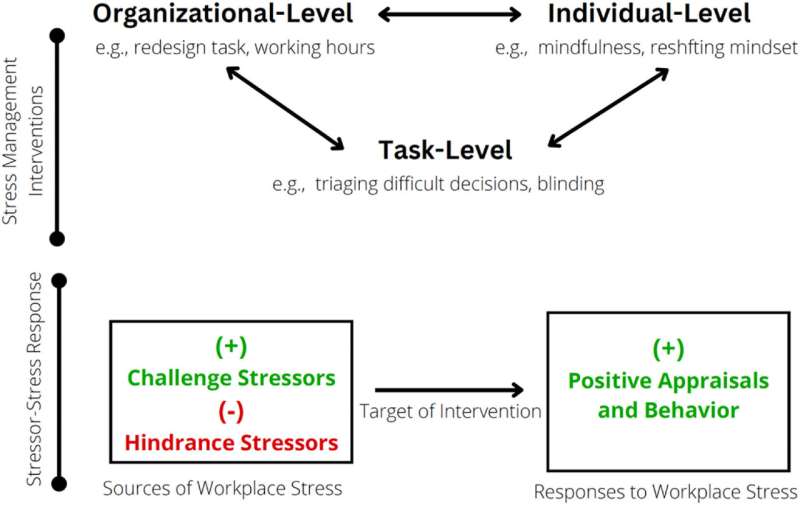This article has been reviewed according to Science X's editorial process and policies. Editors have highlighted the following attributes while ensuring the content's credibility:
fact-checked
trusted source
proofread
How workplace stress in forensics labs affects expert decision-making

In 2004, forensic experts misidentified the perpetrator of a series of train bombings in Madrid, Spain, erroneously concluding that fingerprints collected from evidence matched those of a suspect who was later cleared. An investigation into the mistake found that fingerprint experts' stress, among other human factors, played a role.
In a recent paper published in Forensic Science International: Synergy, Yale researchers assessed how stress might affect the performance of forensic experts and the quality of their decisions.
Drawing from several fields (including cognitive psychology, medicine, and management), the researchers identified three factors that can affect forensic expert decision-making: the nature of the decision, such as the complexity of the evidence in question; individual differences, including the expert's level of anxiety or tolerance of ambiguity; and the work environment.
They then applied an evidence-informed structure for understanding workplace stress that breaks down its components and their effects.
"This framework can help stakeholders identify ways to manage stress at work and test how effective those approaches are," said Mohammed Almazrouei, lead author of the paper and a postdoctoral fellow in the lab of Ifat Levy, a professor in the Department of Comparative Medicine at Yale School of Medicine.
The researchers suggest using terms like stress "management" or "optimization" rather than "reduction," as the latter term suggests that workplace stressors should be uninformedly decreased. The paper emphasized that some types of stress can have positive effects on experts.
Based on this work, the researchers identified short- and long-term interventions to address the detrimental effects of stress, including acknowledging occupational stress can affect experts' decisions, providing trauma support, training managers in emotional intelligence, and instituting policies that do not punish employees who are forthcoming about their experience of stress.
"Ultimately, managing stress effectively can benefit forensic experts, forensic science organizations as a whole, and the administration of justice," said Almazrouei.
More information: Mohammed A. Almazrouei et al, Unpacking workplace stress and forensic expert decision-making: From theory to practice, Forensic Science International: Synergy (2024). DOI: 10.1016/j.fsisyn.2024.100473





















